1: Traveling with your External Hard Drives
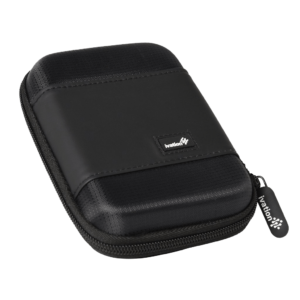
If you travel with your external hard drives, one of the best things you can do is have a protective case to put them in.
I would also recommend trying to protect it by wrapping it in bubble wrap or even putting in between your clothes, anything that will help avoid impact. (think of it like a delicate piece of glass)
For example:
You are going on a plane to travel to another state or country, and you go through the check-in process. As you may know, they can often be pretty rough with our bags. We have seen many external hard drives have issues after traveling and end up with clicking & beeping symptoms.
Even laptops with broken screens, I would rather be safe than sorry so pack with caution. You don’t want to get to your destination and be stuck with a defective device, this could ruin the whole trip.
2: Keeping the Desktop Free of Dust Helps Prevent Heat
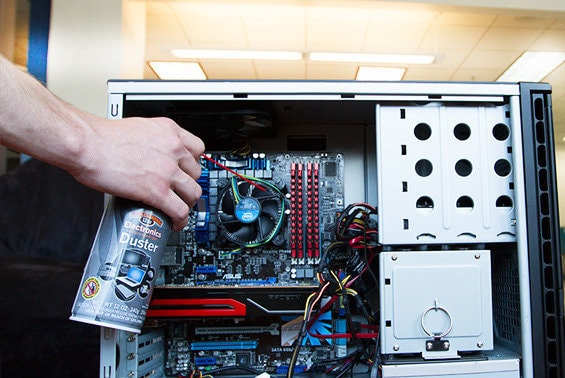
For desktop hard drives you want to make sure they are sufficiently cooled inside the tower with a good cooling system. An ideal environment for hard drives in desktops would be a well-ventilated computer case with good cooling fans.
When hard drives heat up the lifespan is shortened significantly and can cause failure at a faster rate.
Another good idea is making sure it’s in an area that won’t get knocked into, kicked and away from doors, sliding doors, and windows that constantly open.
Areas like this cause more dust to enter your computer then you would expect, this can easily be avoided.
The more dust that enters your tower creates a blockage in the fans and decreases the effectiveness of your fans. This can even cause the fans to lock up and completely stop working.
Most people don’t know that enough dust can carry an electrical current from one component to another.
That can cause a short or the fans to stop efficiently cooling or entirely die.
3: Why Not to Run Chkdsk
Hard disks are eventually going to build up errors and if the hard drive starts to fail, running a chkdsk could cause it to die and leave you in a worse situation entirely.
This is because when you run a chkdsk it is very stressful on the drive.
Chkdsk causes it to read every sector on the drive for errors.
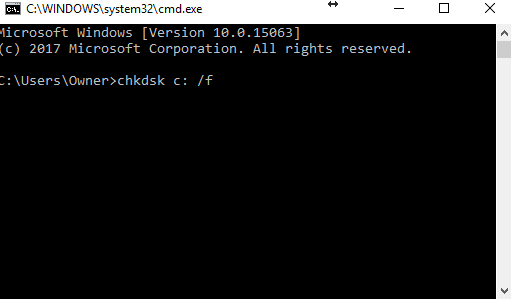
If the heads are weak inside the drive, this will cause them to deteriorate and even cause a head crash and require advanced data recovery methods.
Chkdsk can be helpful on good drives for finding errors in system files, and even in some cases repair a system that stopped booting.
Using this tool should always be used with great caution.
Most of the time, these errors are a sign of a soon to be/or already failing hard drive or can be caused by improper computer shutdowns.
Make sure you perform a quick test on the drive to check the health with CrystalDiskInfo or another related software first.
In any case, if you do decide to run this process there is a great guide for windows 8 & 10 on Digital Citizen.
4: Add Hard Drive Monitor & Quick Test the Drive Without Stress
There are so many different tools to choose from when picking a hard drive monitoring program.
Most of the monitoring software’s offer a wide variety of features that run in the background, My favorite choice at the time of writing this article is CrystalDiskInfo.
This is a free tool that will monitor everything from hard drive temperature to percentage of open space and everything in between.
CrystalDiskInfo can send out email alerts if something is wrong with the drive it’s monitoring.
These alerts can help you avoid a disaster before they fail entirely. However, nothing is 100%.
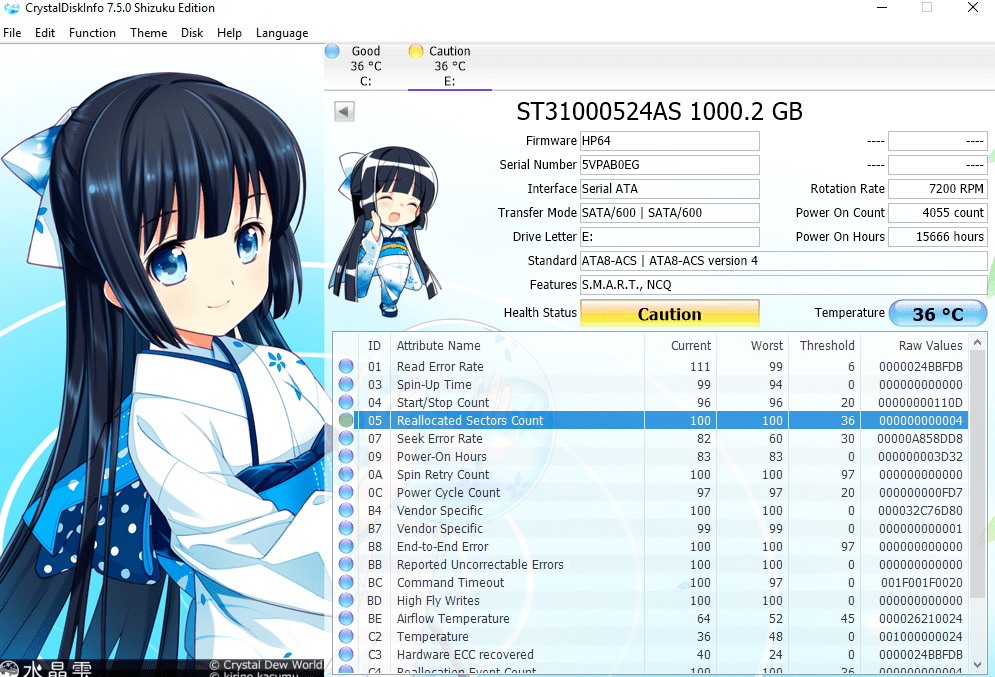
Here is an example of when a drive does run into problems.
5: Be Careful about the Surrounding Environment
After numerous tests with good and bad drives in our shop, we have discovered drives will live longer in cool conditions.
Keeping the hard drives in a secure, and cool location is an essential first step.
In a cold place, it can help lengthen the lifespan of the hard drive.
Our team see’s PCs stuck in small cabinets with zero circulation of air all the time.
The computer will run hot in these situations, and it shortens the lifespan of the equipment.
You need to provide sufficient ventilation for computer’s fans to properly cool your computer.
If you don’t have a space for this, consider adding a fan to help remove the stale warm air produced by the computer.
Consider adding some liquid cooling options.
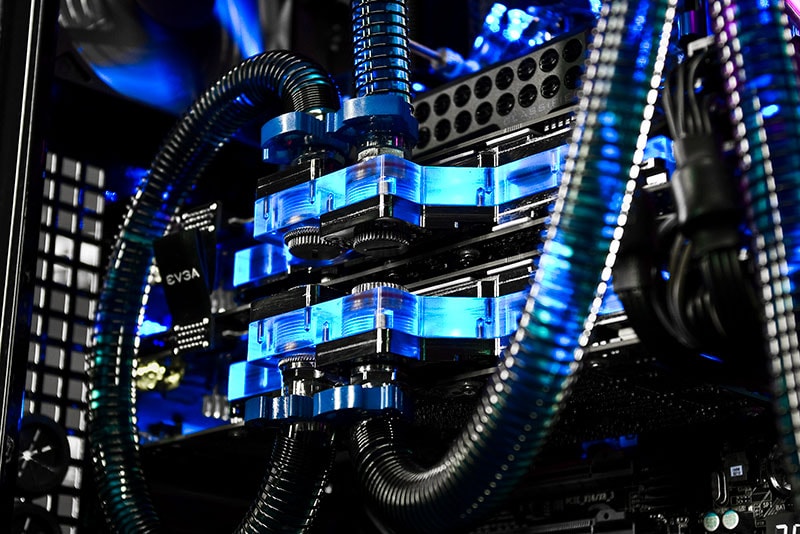
6: Watch Out for Static Electricity
Static electricity is the enemy of all electronic components. When you handle desktop & laptop computers, make sure you ground yourself first by merely touching the side of the computer case.
If you often seem to get shocked every time you touch something, get yourself an anti-static wristband.
That is an excellent sign that you must ground yourself before working with any computer components including hard drives.
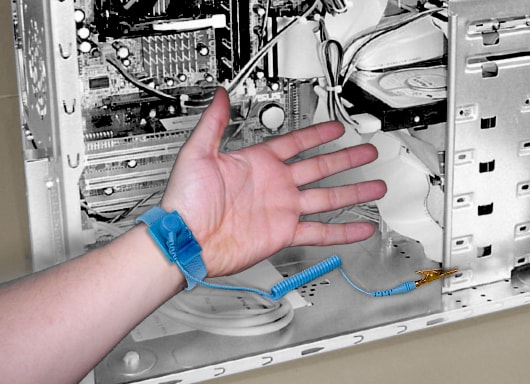
I have witnessed someone cleaning their computer out from dust and accidentally shocking the computer.
After this happened, the computer no longer functioned and had to be replaced.
Hard drives should especially be kept away from magnets.
A strong enough magnet can erase a hard drive.
7: Defragment your Hard Drive
Please keep in mind a quick hard drive test should always be done first because this can cause stress on the hard drive.
If the drive is failing, this will be too stressful and will cause it to fail in most cases.
A fragmented drive is being pushed to work harder than a compacted one.
All hard drives should be used in their most efficient states to avoid excess wear and tear.
This works to extend the life of the drive by keeping the file structure more compact.
This allows the read heads to not move as much or as often.
I do not recommend defragging your drive on a schedule because if there is an issue with the drive and it runs a scheduled test, you will end up in a worse situation.
Here is an excellent in-depth guide I found on LifeHacker
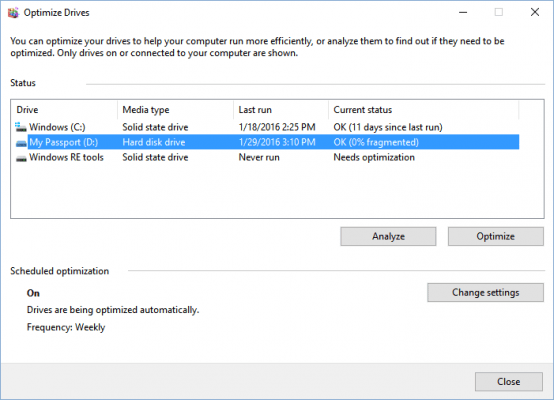
8: Upgrade the PC Hard Drive with a Solid State Drive (SSD)
Solid state drives are basically large flash drives, so they have no moving parts inside like traditional hard drives.
Without having to worry about moving parts, the lifespan of the drive is going to be much longer, but everything fails at some point.
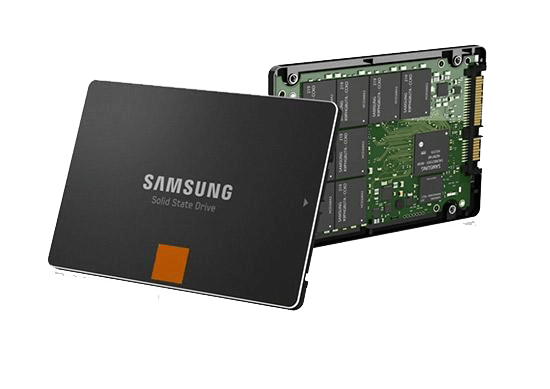
Our Team has personally recovered data from many SSD drives, and in most cases requires advanced data recovery equipment to accomplish this task.
SSD drives do cost more upfront, but the speed and reliability are much higher and a better chance of not failing on impact or during travel.
Save money in the long run by offering a longer lifespan and improve productivity.
That means it has a less likelihood of drive failure, which will cause downtime if data recovery is needed or in some cases not possible.
9: How to take Advantage of Power Save Options
On nearly every Operating System (OS), you can configure power saving; this allows the hard drive to spin down and doing this will lengthen the drive.
In some situations, drives would spin 24/7 — which would drastically reduce the lifespan of a drive.
Sometimes this is set on computers providing a network share that needs to be always up for access.
If the drive is sleeping, there will be no way access the files until the computer is woken up.
If you do decide to go this route it is suggested to set up the hard drive with a monitoring program as described above.
By default, most computers use the Balanced Power Savings plan by default; this allows the computer to turn off the hard drive after 20 minutes of computer use.
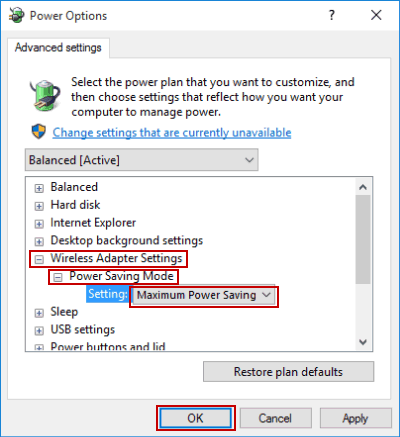
10: Back Up, and Back Up Again, Redundancy is Key!
Eventually, that hard drive will fail. No matter how careful you are, it doesn’t matter.
Ultimately, it will die and sometimes without notice so please make sure you are always backed up.
If you decide to backup to external hard drives, always make sure you keep them up to date.
There are some software’s available that can schedule this task for you.
However, Most people never think about, what happens if my backup drive fails.
Always have a backup of your backup, redundancy is critical.
If the backup drive fails, you’re stuck with nothing!
So it’s always recommended to have two up to date backups.

My favorite option is cloud storage, setting up cloud storage is easier than you think.
In a lot of cases can even save you if you ever get hit by a ransomware virus.
You may notice before it syncs over your cloud storage.
My choice in software is Microsoft OneDrive; they have an Office 365 plan that comes with 1TB each for one year for five users for $99.
Other suggestions?
Know of another form of wisdom or magic that keeps those disks from failing prematurely?
Share your experiences with other readers.
